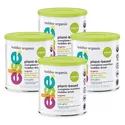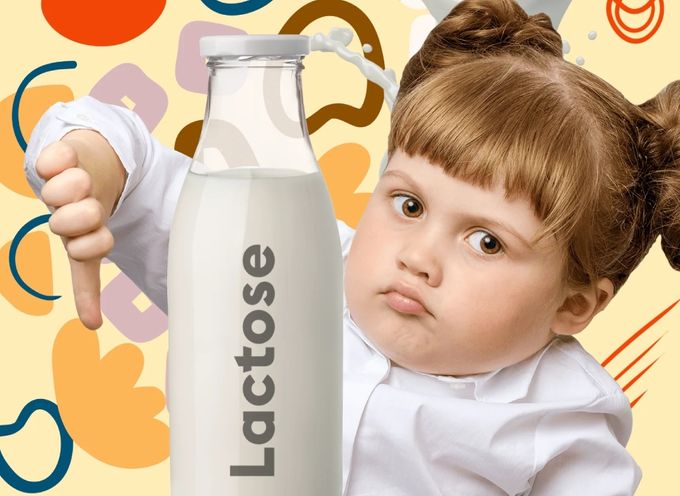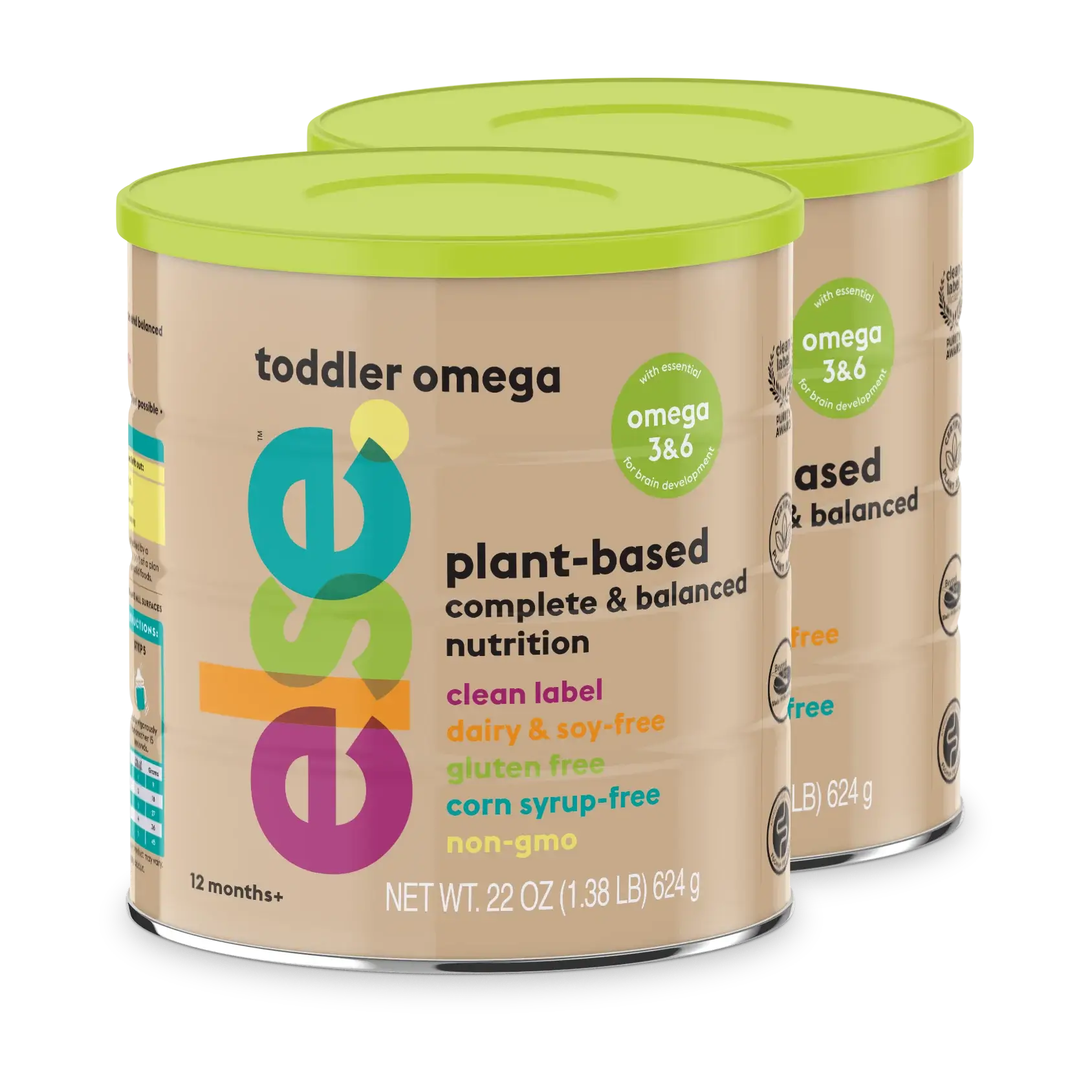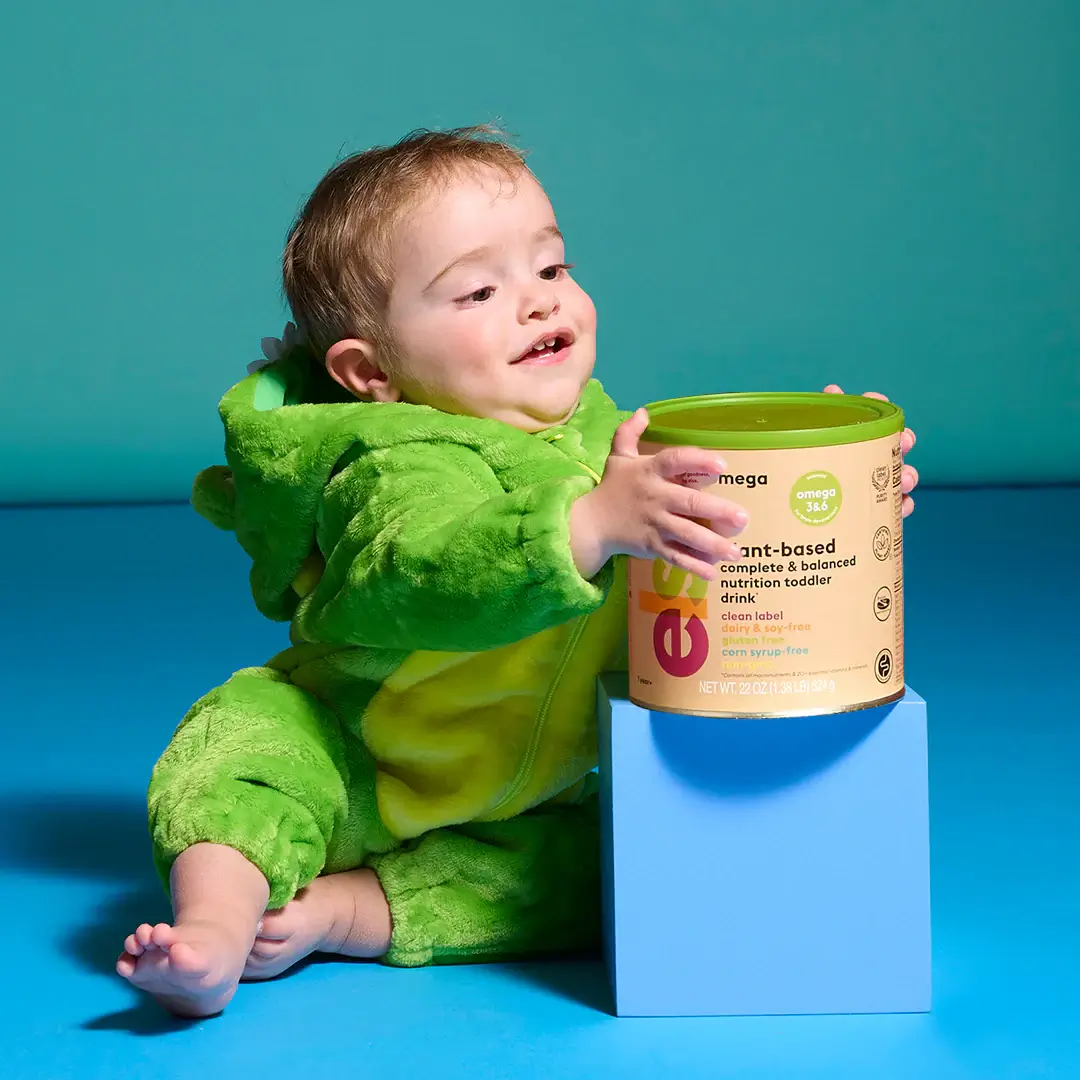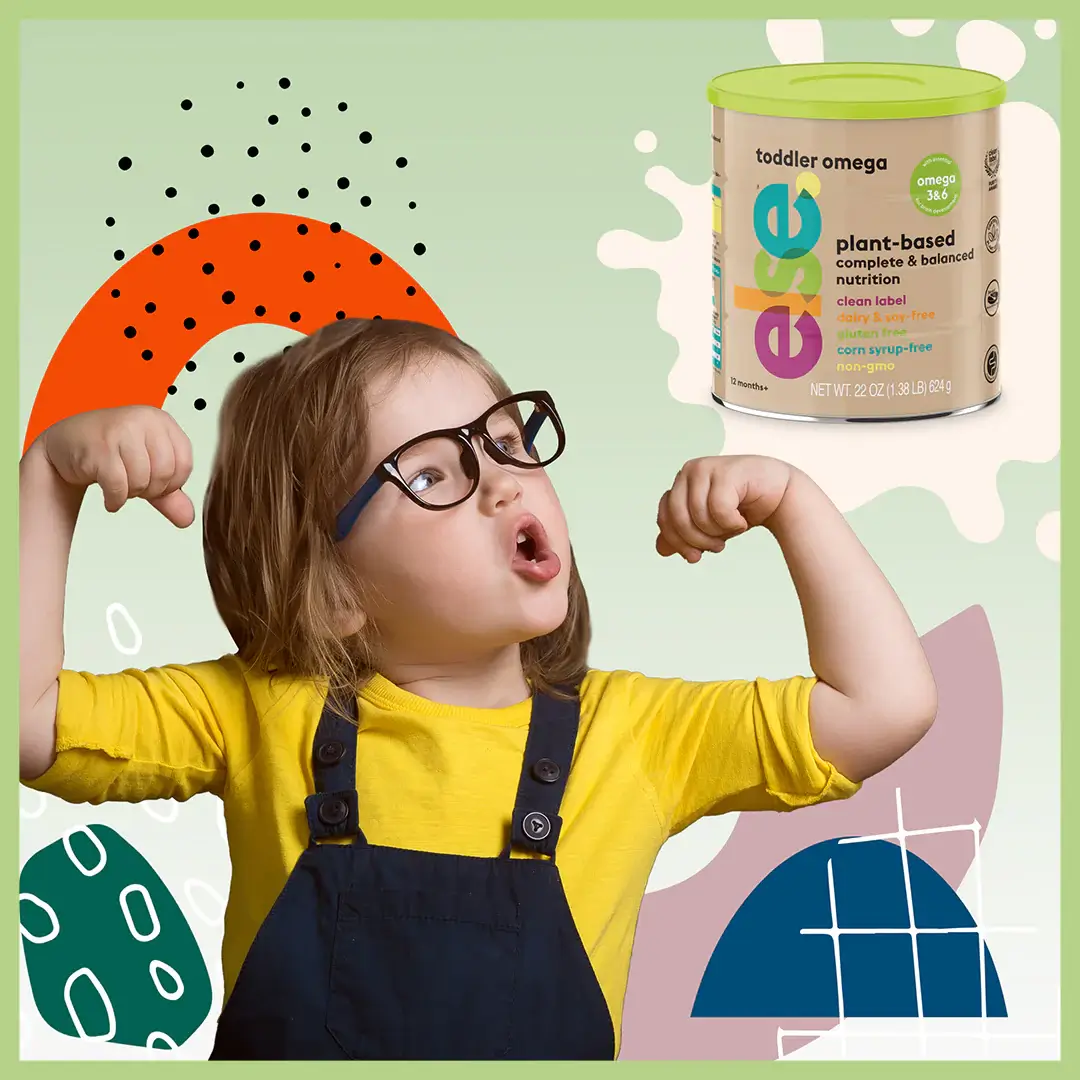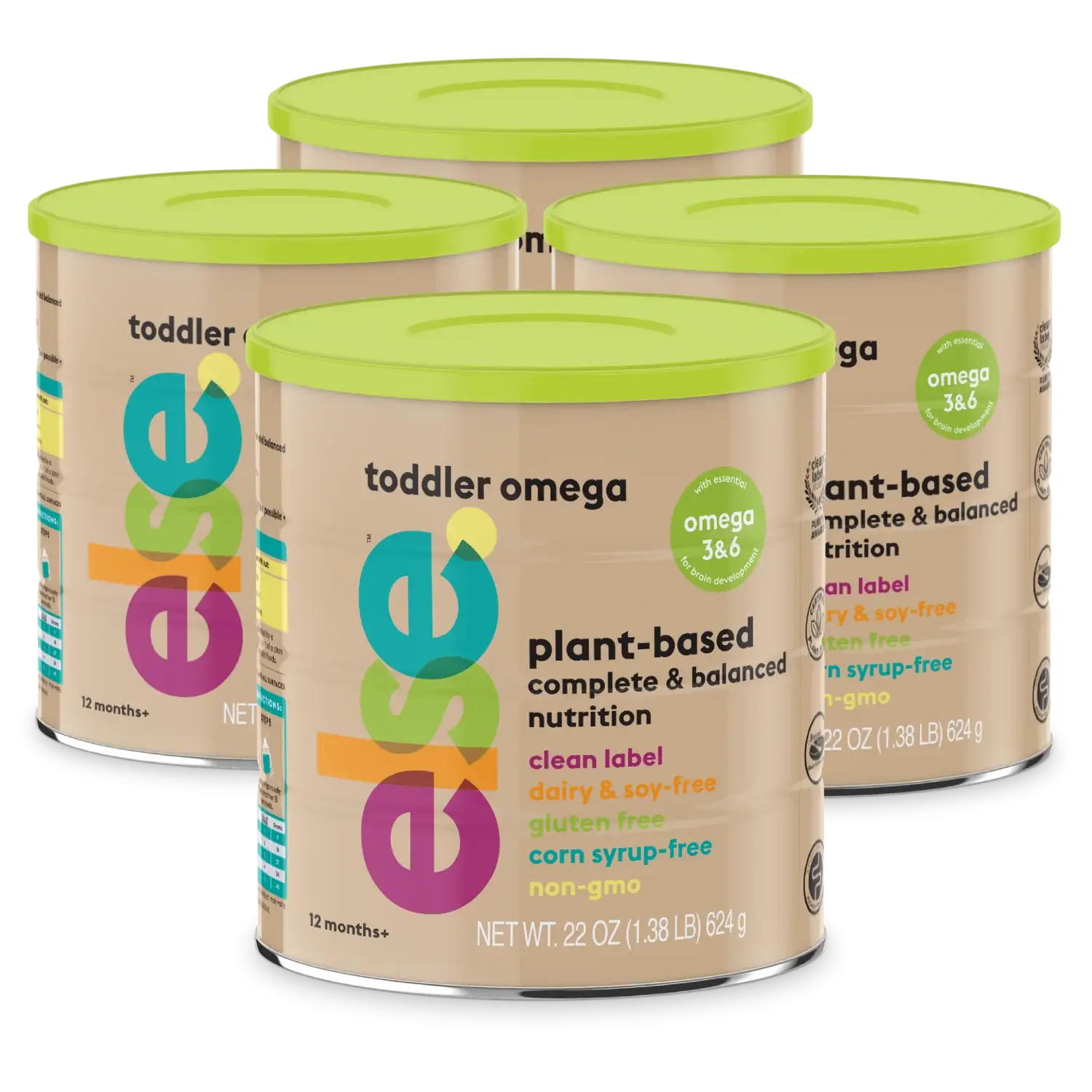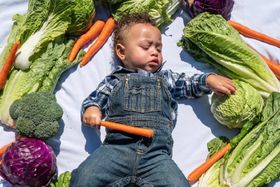6 Signs Your Toddler Could Be Lactose Intolerant
Learn how adjusting your toddler's diet can ease lactose intolerance symptoms and provide essential nutrients for their well being.
Updated May 26, 2024

Most people are familiar with lactose intolerance, which affects two-thirds of adults. As adults, lactose intolerance is a manageable, albeit annoying, condition. Still, as a child who can receive many of the nutrients they need to grow and develop from milk, it can be far more complex, particularly for the parents.
The first step to learning how to treat your child with this condition is identifying the issue. We discuss lactose intolerance, the signs of lactose intolerance in toddlers, and healthy milk alternatives you and your little cub will love.
6 Key Symptoms of Lactose Intolerance
Once you begin feeding your child cow’s milk and other dairy products, watch for these common signs of lactose intolerance:
1. Abdominal Pain and Cramps
Your little one may not be able to tell you they are experiencing stomach cramps or a tummy ache, but they won’t be shy about crying or clinging close to you if their stomach hurts.
Paying close attention to their behavior and irritability after eating a dairy product will help you pick up on potential lactose intolerance.
» Abdominal pains in your toddler may be a clear sign to consider dairy-free formula.
2. Bloating
Once again, your toddler probably can’t tell you they are experiencing this symptom if they haven’t learned the word “bloated” yet. Still, if you carefully inspect their little tummy, you should be able to tell if it’s distended after eating dairy.
3. Nausea
Nausea is another common side effect of lactose intolerance. If your child has a sensitive stomach, they may even spit up. When determining dairy sensitivity, watch for signs of nausea, such as clutching the stomach or crying.
4. Diarrhea and Strong-Smelling Stool
One of the easiest for you to spot as a toddler parent, you’re more than familiar with changing smelly diapers, so you’ll probably notice if the consistency and scent of your child’s stool seem off. If your child can’t digest lactose, it will ferment in the digestive tract, producing diarrhea and/or fermented-smelling stool.
5. Gas
If your child is particularly gassy after consuming dairy or cries when passing gas, they could be lactose intolerant. Gas trapped in the stomach can also cause extreme discomfort and stomach cramps that may make your child irritable or upset.
» If your child is experiencing these symptoms, take a look at our guide on gluten sensitivity and celiac disease.
6. Quick Onset of Symptoms
These symptoms are common enough to indicate any number of illnesses, but a significant differentiator between other diseases and food intolerances is the quick onset of symptoms.
Any of these signs will appear within 30 minutes to 2 hours of consuming milk or dairy-based products if your child is lactose intolerant.
If your child shows signs of dairy intolerance, try lactose-free alternatives like plant-based formulas from Else Nutrition. They're gentle on sensitive tummies, providing essential nutrients without dairy-related discomfort.
Testing for Lactose Intolerance
While these signs of lactose intolerance in toddlers will help you spot the condition, you can also test for lactose intolerance at the doctor. Depending on your pediatrician, they may recommend a simple breath test, which measures hydrogen levels in the breath after consuming lactose.
When hydrogen levels are present or increased, it’s an indication that lactose isn’t being properly digested. Depending on symptoms or proven test results, your pediatrician will recommend diet changes to support kids' allergies, such as eliminating or reducing dairy products from your child’s diet.
» Try delicious dairy-free nutritional formulas if you suspect lactose intolerance in your toddler.
Treating Lactose Intolerance in Toddlers
There’s no cure for lactose intolerance. Getting rid of lactose-containing foods from your child’s diet helps keep uncomfortable symptoms at bay. Other things to consider are:
- Every child's tolerance is unique: Like their favorite stuffed animal, some children might tolerate a bit of lactose without any problems. Others may need to steer clear of dairy altogether.
- Hidden lactose sources: Lactose can sneak into unexpected places like processed foods, baked goods, and salad dressings.
- Nutritional needs come first: Milk provides essential nutrients for growing bodies. However, if dairy elimination is not an option, plenty of lactose-free options and substitutes are available. They contain calcium, vitamin D, and other nutrients your child needs to thrive.
» Removing lactose from your child’s diet helps alleviate symptoms. Explore dairy-free and soy-free formula options.
Consult your pediatrician to understand what foods, milk, and other dairy products may be causing digestive issues for your little one.
High-Quality Milk Alternatives
Adopting a high-quality milk alternative to meet your little one’s nutritional needs is essential. Several options are on the market. However, most of the dairy substitutes you’ll see on the shelves aren’t formulated for toddlers.
Here are a few pros and cons of the most common options so you can choose the best for your child.
» Discover alternatives to Enfagrow toddler formula
Soy Milk
Soy milk is made from soybeans and has the closest nutrient composition to cow’s milk. However, it’s important to choose a fortified and organic version to ensure your child gets all the nutrients he or she needs and protect them from genetically modified ingredients.
» Fortified, organic soy milk is best for nutrition. Read about soy allergy foods to avoid.
Nut Milk
You’ve probably noticed a plethora of nut milk on grocery store shelves: almond, cashew, macadamia, coconut, and so on. While nut milk is a great alternative for full-grown adults, it's much lower in fat, calories, protein, and carbohydrates. Lacking in terms of providing proper nutrition for your toddler.
If you opt for nut milk, reach for unsweetened versions to avoid excess sugar often added to these products.
» Be mindful that nut milk can trigger allergies. Find out how to safely introduce allergens to your baby.
Seed Milk
Seed-based milk alternatives are made from hemp, flax, or sesame seeds. While these seed milks are high in fat and fiber, they fall short of carbohydrates, protein, and overall calories.
Grain Milk
Grain-based alternatives such as oat milk and rice milk are also available. However, they provide little nutritional value, lacking essential calories, protein, and fat compared to cow’s milk.
Rice milk is known as a good source of calcium and contains a variety of other micronutrients, but it also can have traces of heavy metal arsenic, which can cause problems later in life.
Complete Plant-Based Nutrition
There is a better quality milk alternative for lactose intolerance in toddlers. When all these nut, seed, and grain milk don’t measure up, look to something Else.
Else is different from most milk alternatives because it is made with three main ingredients— almonds, buckwheat, and tapioca—without preservatives or stabilizers. This dairy-free nutrition drink contains no casein, whey, or lactose.
This makes it safe for children who experience toddler seasonal allergies, dairy allergies, or lactose intolerance. It's made with whole foods that provide the protein, fat, fiber, vitamins, and minerals that meet your growing child's nutritional needs.
» Looking for something different? Try Else's ready-to-drink plant-powered kids shakes!
Previously, parents who were looking for an allergy-friendly, plant-based, vegan, and ethical option that is nutritionally sufficient to replace cow’s milk came up empty.
With Else, there is now a readily available, dairy-free, soy-free, non-GMO, nutritionally dense, low-in-sugar alternative to cow’s milk that’s tasty too. Your kids will love the slightly sweet flavor and experience none of the side effects they have from milk.
» Check out Else's Plant-Based Complete Nutrition for Toddlers.
Else: The Best Milk Alternative for Your Toddler
While there are many dairy-free alternatives for toddlers available, few offer the calories, fat, calcium, vitamin D, and protein found in milk plus all of these are missing a host of other nutrients and vitamins not found in cow’s milk.
Else Plant-Based Complete Nutrition is the ideal milk alternative for 1-year-old toddlers and older. It makes living with lactose intolerance easy and sufficiently delicious for your child’s diet.
The content and advice provided in this article are for informational purposes only and are not a substitute for medical diagnosis, treatment, or advice for specific medical conditions. Always consult a pediatrician to understand the individual needs of your child.




